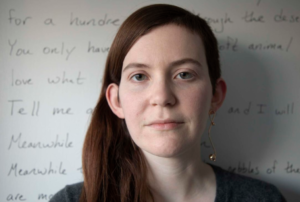From PublicSource: “Was I labeled as ‘ill’ so the people who hurt me wouldn’t be held accountable? Why was I responsible for cleaning up the aftermath of my trauma? Should I have responded to trauma with poise and resilience rather than distress and tears? I realized that symptoms were never my biggest obstacle in life. I definitely could relate to the narratives I read on the Internet describing the lows of depression or the queasiness of anxiety with perfect clarity. But I never understood why those narratives were always the only ones at the forefront of our conversations in mental health. For me, the biggest obstacle in life was the label.
Labels were always attached to me without my permission. They haunted me every time I wanted to heal from my past traumas, to be truly myself. When I was finally given the choice to speak about myself how I wanted to, I chose to identify as ‘Mad.’ Madness spoke to me in a way that mental illness didn’t. It gave me the language to speak about what was done to me, rather than my reaction to what was done to me. It introduced me to neurodiversity, the social determinants of mental health, the impacts of trauma — concepts that described my mind and experience far better than illness and the medical model. I want to see mental illness from a perspective that’s empowering to me, my experience and the experiences of my community. Most importantly, ‘Mad’ is an identity that I’ve chosen, that I’ve related to and connected with, rather than a label that was ascribed to me. This is who I truly am, not who other people wanted me to be.
This choice came with a lot of social consequences. Since rejecting the label of mental illness for myself, I’ve found that I make people uncomfortable or even angry, especially people who adopt more traditional views in the mental health community. It’s like my identity somehow overwrites theirs. Some people feel the need to force their own identity on me, saying that I’m in denial of having a mental illness. I’ve been sent hate mail calling me wrong as a person, perpetuator of stigma, a bad influence for kids and many things I cannot repeat. I’ve been bullied and fired from jobs in Pittsburgh mental health for choosing to identify as ‘Mad’ — discrimination without many opportunities for legal recourse. With every negative interaction, those feelings of wrongness and worthlessness from my childhood returned. The difference is now they feel a lot less suffocating.”












